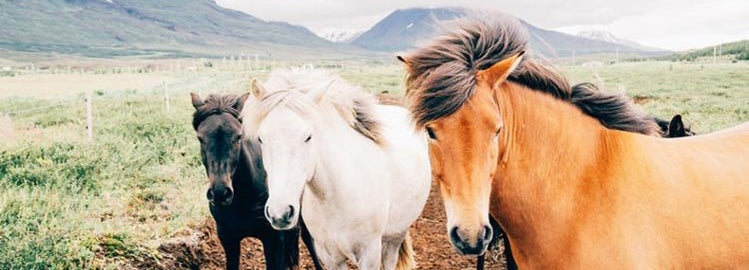6 Popular Insurance Coverages Horseowners Don't Know They Need

As any equestrian knows, owning horses requires a sizable investment of not only money, but also time, effort and passion. Whether you board your horses, care for them yourself, or own a boarding business, equine or horse mortality insurance can help protect your investment and even assist you in covering some of the major medical expenses often faced by caretakers.
What Does Equine Mortality Insurance Cover?
Equine mortality insurance provides coverage for your horse in the event of:
- Death as a result of an injury
- Death as a result of illness
- Death as a result of euthanasia
- Usually includes protection in the event of loss or death as a result of theft
Some insurance providers may require documents regarding the health of the horse, also called a veterinarian certificate, for equine mortality insurance on horses valued at or above a certain amount. This typically ranges from $50,000 to $100,000, depending on the insurance carrier or the policy.
Other companies may also require medical documentation for horses older than a specified age (such as 20 years) and foals younger than a certain age (such as 30 days). These companies may not provide equine mortality insurance for horses or foals older or younger than the specified guidelines.
Certain medical costs, such as colic surgery, may be covered under a general equine mortality policy at no additional premium cost.
It's important to shop around for coverage that fits the needs of you and your horse.
Additional Coverage Options to Consider
While some insurance companies may offer equine mortality policies that include a few perks, like colic surgery coverage, you may have to add such options as endorsements and be willing to pay higher premiums. Other options include:
- Transportation coverage: If your horse or horses spend significant time in a trailer, this is a wise option to consider. This coverage protects your investment in the event your horse is injured en route.
- Value endorsement: This coverage option ensures that a horse mortality insurance claim will be paid at the highest value of the horse during the life of the policy, even if that value has decreased by the time of its death. For example, if your horse is valued at $50,000, but that value is $25,000 at the time of its death, this endorsement ensures that you receive the higher claim amount, up to your policy limits.
- Equine medical and surgical coverage: This policy option can help pay for major medical expenses, and is usually offered as an endorsement with a dollar amount limit. You may agree to pay $300 more a year in premiums for medical coverage of up to $10,000 to help pay for veterinarian expenses from accidents, injuries or illnesses.
- Equine liability coverage: This can help pay your legal defense costs and court fees should you be sued as a result of your horse causing injury or property damage to another person. This option typically has a dollar limit as well. Your liability coverage may pay for the first $25,000 of costs stemming from a lawsuit if that is the policy limit.
- Infertility coverage: In the event your proven stallion becomes permanently incapable of producing offspring as a result of accident, sickness or disease, this endorsement can pay up to 100 percent of the insured value.
- Loss of use: In the event your horse becomes permanently unable to perform its insured use as a result of an accident, illness, injury or disease, this coverage can pay a percentage of the insured value. This endorsement requires veterinarian documentation as well as usage records (such as placement awards from shows in the case of dressage horses).
How Much Does Equine Mortality Insurance Cost?
Much like any type of property insurance, the cost of one horse owner's equine mortality insurance may be very different from another's. Several factors will be considered in determining your premiums, including:
- The value of your horse. A thoroughbred will have higher premiums than a mini horse, and even within the same breed, one horse may be valued higher than another.
- The age of your horse. Younger, healthier horses will have lower premiums than older horses.
- The gender of your horse.
- The use of your horse. A show horse will have higher premiums than a pet horse, and a racehorse will have higher premiums than a dressage horse.
- The policy options you choose. The more endorsements you add to your horse mortality insurance coverage, the higher the premiums.
You should compare policy options and premium rates between several different insurance companies to be sure the equine mortality coverage you choose offers the best protection at the most affordable rates.
